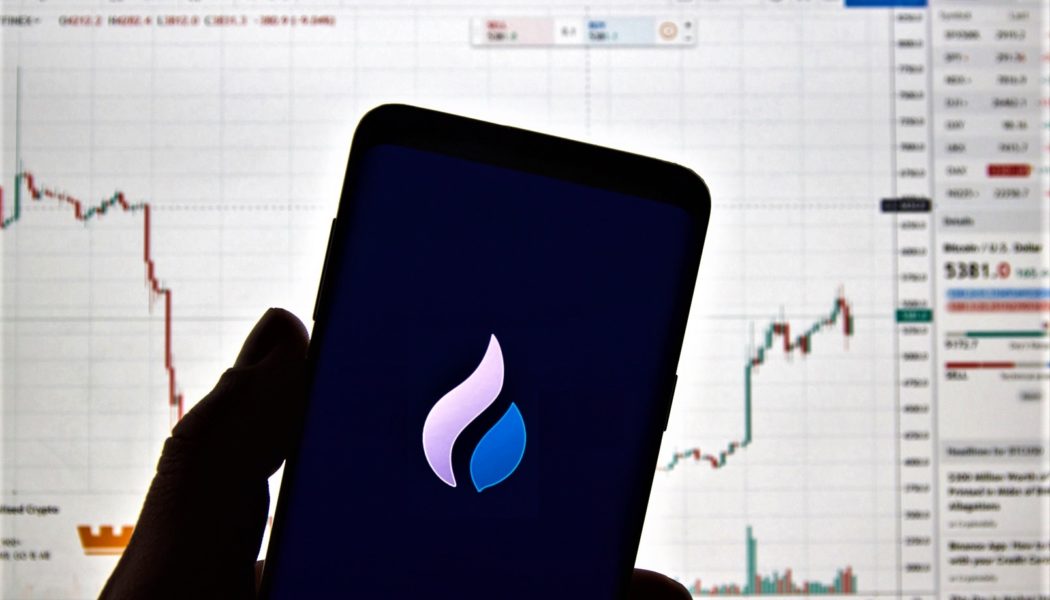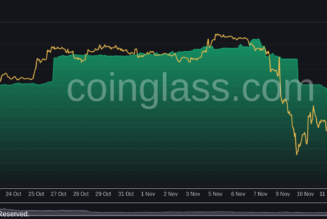
Here are all the interesting headlines you missed outside the crypto market this week:
Panama’s President vetoes crypto bill over money-laundering concerns
Panama President Laurentino Cortizo on Thursday shot down a crypto bill introduced in September 2021 with a scope covering several cryptocurrencies, unlike El Salvador’s that major in Bitcoin. Cortizo partially vetoed the bill, citing non-compliance with the recent FAFT recommendation on fiscal transparency and prevention of money laundering.
If the bill were to be approved, it would allow Panamanian natives to buy everyday goods and services using digital assets like Bitcoin, Ethereum, and Litecoin among other crypto coins. The bill would also make digital assets mainstream for settling taxes or any fee owed by the state. Additionally, the legislation would recognize DAOs.
Panamanian lawmaker Gabriel Silva who took part in drafting the bill claimed in his tweet that the head of state’s decision is “a lost opportunity to generate jobs attract investments and incorporate technology in the public sector.”
The veto decision by the President is, however, not a finality as he dubbed it “not subject to sanction.” Congressman Gabriel Silva claimed that the bill didn’t need a complete redo, just a focus on the vetoed sections.
Approval of the bill by the country’s head would make Panama the second Latin country to embrace digital assets in its financial system after El Salvador.
Luxury watchmaker Tag Heuer to display NFTs in its latest innovation
Luxury chronograph brand Tag Heuer has continued with its entry into the cryptocurrency space, this time making a move in the NFT niche. Barely a month since the brand accepted crypto payments with support for more than a dozen crypto coins, the Swiss watchmaker is scaling up its innovative capabilities
The newly launched Connected Calibre E4 smartwatch will enable its owners to display NFT artwork on the watch’s face. The functionality is also available with an update by owners through Apple’s App Store and Google Play. This feature will enable users to sync NFTs to the watch using digital wallets controlled by the user’s smartphone.
According to the company website, the watchmaker introduced a new expression of digital identity where verified NFTs get displayed in a hexagon with cloud particles gravitating the image. Users can also display images from their personal libraries. Currently, the watch allows users to connect to crypto wallets like MetaMask and Ledger Live, from where they can select the NFT they wish to display.
The luxury watchmaker revealed that it partnered with giant NFTs like BAYC and CLONE-X in bringing forth this innovation. It adds to the list of other chronograph brands that have issued NFTs, including Hublot, Breitling, and Bulgari.
Binance and Splyt partner to offer ride-hailing services
Binance, the largest crypto exchange by volume, is expanding its reach following a collaboration with ‘super-app enabler’ Splyt. The move is an effort by the CZ-led exchange to diversify its payment options. Once operational, users will not only be able to pay for rides but also other services like food delivery, public transport and airport transport.
Binance already boasts a customer base of 90 million users globally, while Splyt, the London-based software entity, is operational in 130 countries, making the partnership commanding. There’s a growing need for crypto payment support crypto especially in many traditional services and Binance, through Splyt hopes to capitalize on it.
The exchange’s decision to get a foothold into the crypto payment space is a bold step by a giant crypto entity that could potentially encourage more people to embrace crypto. The positive news also comes at a time when crypto assets are bleeding in the market. Notably, Binance is among the very few firms to expand operations, while others like Coinbase, Gemini and Crypto.com have been actively laying off staff in response to worsening market conditions.
Circle launches a Euro-backed stablecoin in the US
Global FinTech firm behind the USDC coin, Circle, on Thursday, revealed its plans to launch a fully reserved and euro-pegged coin called Euro Coin (EUROC) in the US. The offering will be totally backed by euros held in euro-denominated accounts in the jurisdiction of the US.
The firm noted that the EUROC will be “issued under the same full-reserve model and built on the same pillars of trust, transparency and security [as the] USDC.” The latter is the second-largest stablecoin with a circulation of $54 billion. The firm hopes to limit the friction between crypto and the mainstream financial services by using both tokens that they offer to make businesses easily move euro liquidity on-chain.
Users can use the coin to purchase goods and also in cross-border transfers to people of interest to them. Institutional traders can also make markets while exploiting the coin in arbitrage opportunities in digital assets and DeFi. The stablecoin will launch at the end of the month on Ethereum as an ERC- 20 token.
Several ecosystems like Bitstamp, Binance.US, Ledger, Anchorage Digital, Fireblocks and Uniswap have pledged to support the coin upon launching.
Huobi to shut trading operations in Thailand
Despite Thailand being considered a pro-crypto state, digital assets trading platforms like Binance have had fallouts with the country’s regulators. The latest name to join this list is Huobi technology’s subsidiary operating in Thailand, Huobi Thailand.
The unit is set to shut operations in Thailand after its license was revoked by the country’s Securities and Exchange Commission because of failure to comply with regulations. In a statement by the Thai SEC, the exchange was warned of issues in their system that needed to be addressed as early as March of last year.
Despite being given multiple extensions to their trading system, assets retention and information technology systems, the firm was unable to comply. This prompted the decision to revoke the company’s license permanently last month.
The exchange announced that it would permanently close on July 1, 2022, despite several customers not having emptied their reserves with the platform even after being contacted.
[flexi-common-toolbar] [flexi-form class=”flexi_form_style” title=”Submit to Flexi” name=”my_form” ajax=”true”][flexi-form-tag type=”post_title” class=”fl-input” title=”Title” value=”” required=”true”][flexi-form-tag type=”category” title=”Select category”][flexi-form-tag type=”tag” title=”Insert tag”][flexi-form-tag type=”article” class=”fl-textarea” title=”Description” ][flexi-form-tag type=”file” title=”Select file” required=”true”][flexi-form-tag type=”submit” name=”submit” value=”Submit Now”] [/flexi-form]










Tagged: Binance, business, Circle, crypto blog, Crypto news, Huobi